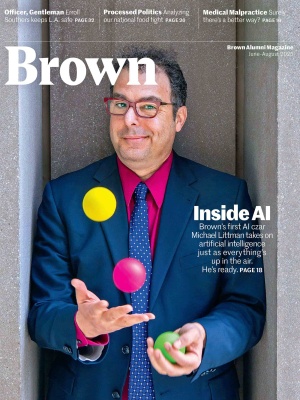Guardian
Erroll Southers ’78, who was racially profiled as a kid in New Jersey, is now one of California’s leading experts in law enforcement, campus safety, and homeland security.
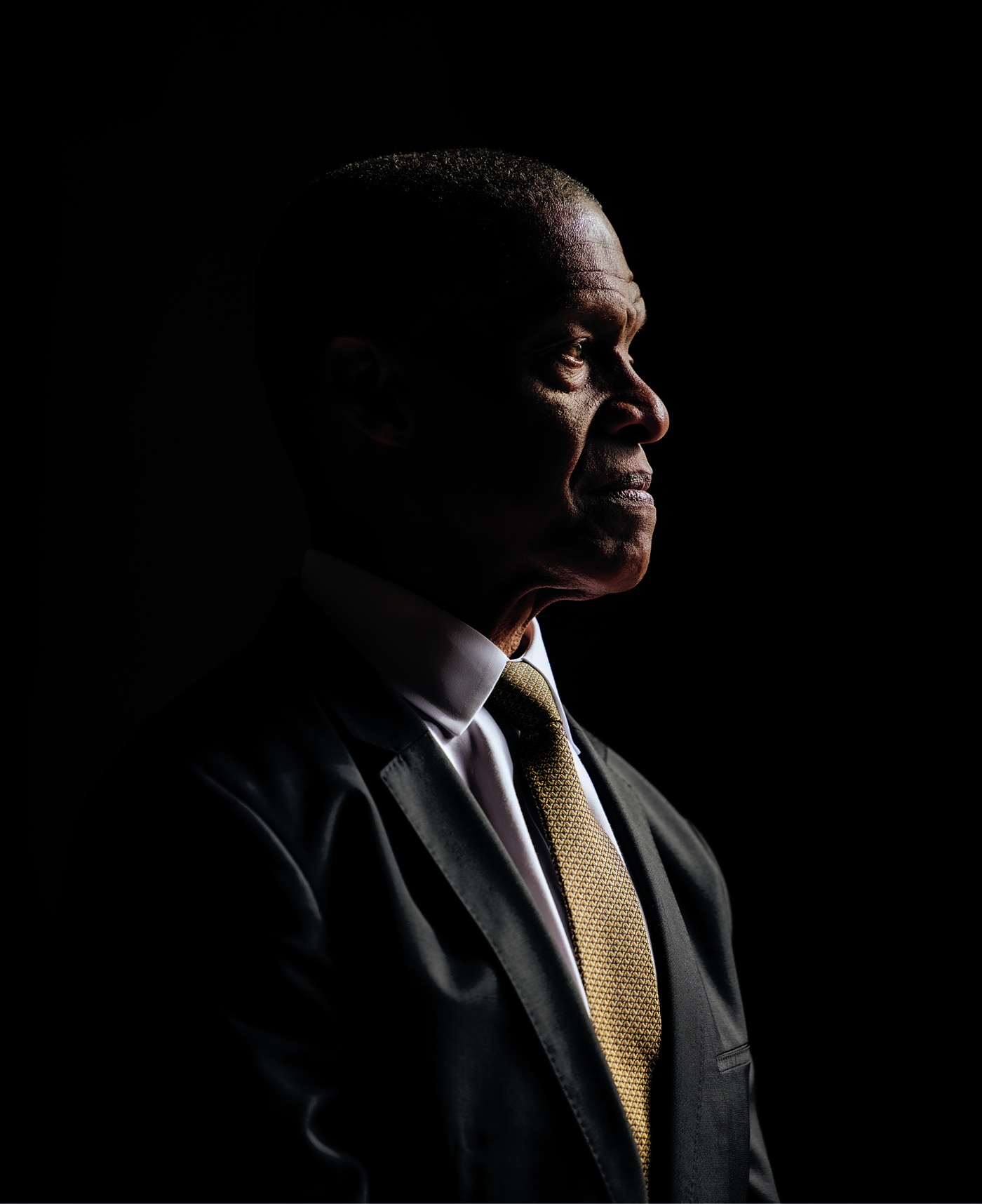
Erroll Southers’s resume reads like the treatment for a character in an action-packed Jerry Bruckheimer film. He was a gang-unit cop in volatile, 1980s Los Angeles, an FBI Special Agent, SWAT, and counterterrorism specialist handpicked by the president to protect the country.
“It’s not quite like a movie but I guess I have been busy,” laughs Southers, a ’78 alum who still hasn’t bothered to slow down.
Today he’s president of the Los Angeles Police Commission, a civilian agency charged with oversight of the city’s police force, and commissioner and associate senior vice president of safety and risk assurance at the University of Southern California, where he oversees three departments and 400 employees. When Southers is not at LAPD headquarters or assessing threats on campus, he’s teaching. The former competitive body builder is a professor of the practice in national and homeland security and director of homegrown violent extremism studies at the USC Sol Price School of Public Policy.
Southers’s passion for law enforcement and public safety is on display throughout his office in the LAPD’s sprawling headquarters. A toy police chopper and old-fashioned paddy wagon sit atop a wooden file cabinet, right next to his 2024 Jack Webb Award from the Los Angeles Police Museum. A bookshelf holds his collection of counterterrorism and law enforcement books. Just outside the door in the hallway is a framed photo of Charles P. Williams, the first Black LAPD police officer to be killed in the line of duty in 1923.
Policing is not in Southers’s family, but his father unknowingly planted the seed that informed his son’s trajectory. “It goes back to when I was a kid,” says Southers, who is Black and grew up in a predominantly white New Jersey town. “My dad and I were having a conversation about one of the several times I’d been profiled by the police. He said ‘Erroll, you can’t change the castle from outside the moat.’ So now, three law enforcement agencies later, I’m in a position to change policy. I’m in a position to affect recruitment and retention. I’m in a position to see that officers get discipline. I’m in a position to hold agencies accountable.”
“My dad said ‘Erroll, you can’t change the castle from outside the moat.’ Now, three law enforcement agencies later, I’m in a position to change policy.”
Southers cuts a clean figure in his starched white shirt, suit and tie. He stands rod-straight and walks at a fast clip, yet exudes a surprising warmth and openness. He appears to know just about everyone he passes in the long corridors of police headquarters, exchanging friendly banter with high ranking officials and respectful, reassuring nods with officers who look pleased to see Southers, yet still address him with a customary “Sir.” “I have a whole different relationship with them [than past commissioners],” says Southers, 67. “Part of the reason they respect me is that I’m only the second former police officer to serve on the L.A. Police Commission since 1870. They will talk to me. I’m in their world. I understand them. And it also helps that a whole lot of these folks have been my graduate students over the past 20 years,” he laughs.
Mayor of Los Angeles Karen Bass appointed Southers to the position, where he helms a group of five civilian managers appointed to set policy and oversee operations at the LAPD. “I have known Dr. Southers for many, many years,” says Mayor Bass, who is perhaps the busiest woman in L.A. but took time out to talk about her appointee. “When I was in Congress and I served on the Judiciary Committee, I was in charge of police reform for the House of Representatives. He was a key expert that I called on as we developed the national legislation [for] the George Floyd Justice in Policing Act.
“But I remembered when President Obama nominated him to be the Assistant Secretary of the Transportation Security Administration,” she continues. “I knew him when I was in the state legislature and he was an appointee of California Governor Arnold Schwarzenegger [as Deputy Director of Homeland Security]. The current governor also appointed him, so I’ve worked with Erroll on California’s Commission on Hate. He’s probably the most knowledgeable person to have ever served on the Los Angeles police commission.”
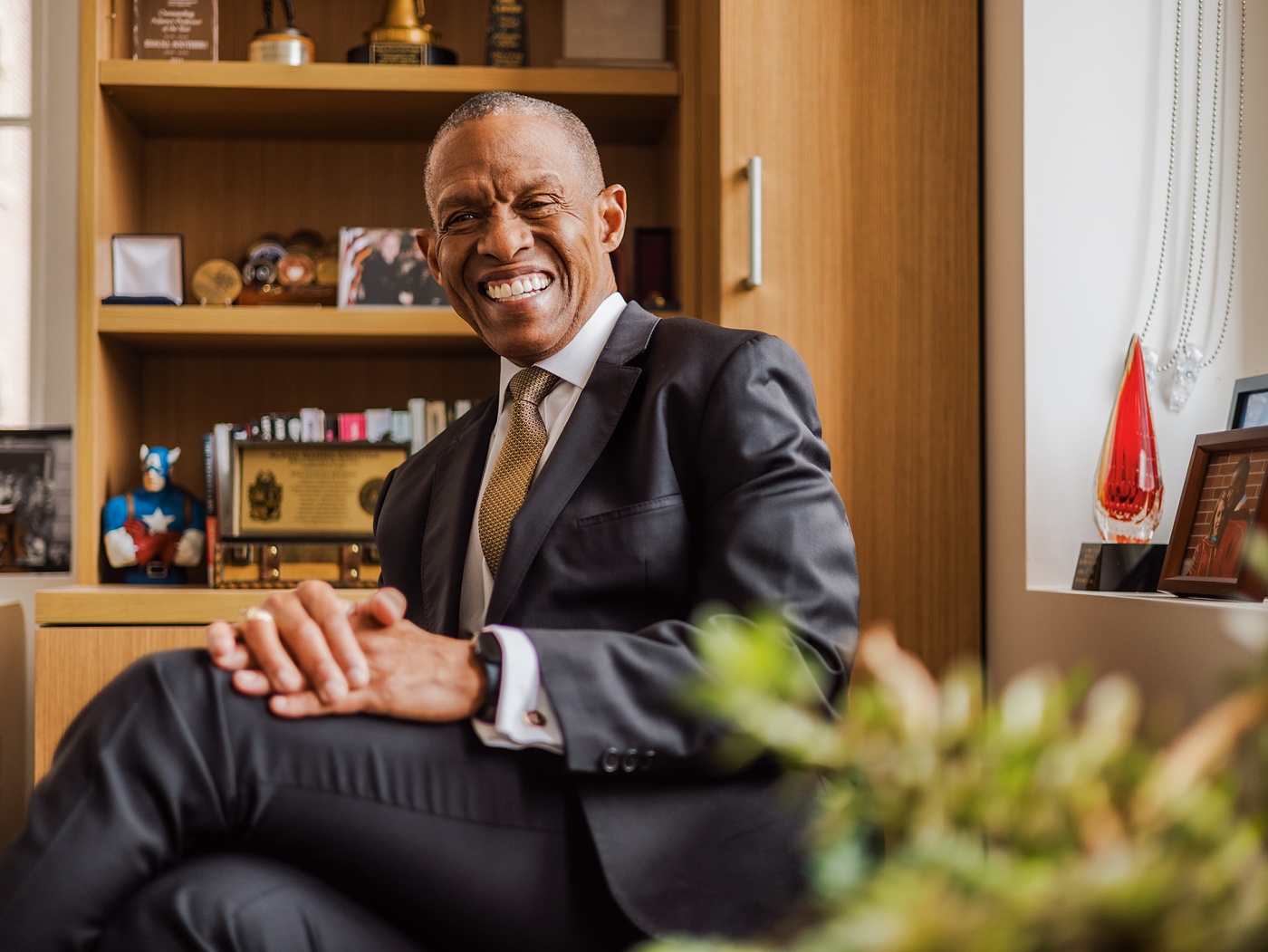
Lessons learned on and off duty—and on and off campus—have informed Southers’s journey from a pre-med student to a nationally recognized leader in public safety. “You have to win people’s trust and make them comfortable,” says Southers, a father of two and grandfather of two more. “Community is everything. If you don’t have the community’s trust, then all the policing in the world won’t help.
“I’m trying to get away from this zero sum mentality that America has right now, that if you’re not for me, you’re against me,” he adds. “I’m trying to make people understand that police reform does not equal defund the police. If you want to see change in these communities, often it comes from people who come from these communities. So I have tried, like many of my peers, to successfully recruit people out of these communities. It’s basically saying, Be the change that you want to see. However, I’m not silly enough to think that there aren’t extremists or racists in law enforcement. But I now have a better opportunity to gauge and impact those kinds of problems when they pop up. It’s an opportunity I would not have had if I was standing on the outside.”
Doctor? No!
Southers grew up in Fanwood, N.J., where his father worked as a draftsman and architect designing naval vessels for the U.S. military “in a classified facility in New York which I never got to see because, well, it was classified,” recalls Southers. “My mom was the consummate overachiever. She was the first African American woman to graduate from Rutgers School of Pharmacy. Then, while raising my younger brother and me, she went back to school and got her teaching degree.” Southers’s father also ended up teaching after retiring from his architectural career, becoming the superintendent of several vocational high schools in New Jersey. Education would become a theme in Southers’s life that still holds today.
“I’m trying to get away from this zero sum mentality that America has right now, that if you’re not for me, you’re against me.”
As an undergrad at Brown, Southers imagined he’d go on to become an orthopedic surgeon, and he was accepted to the College of Medicine and Dentistry in New Jersey. It only took one summer course and a couple months into the fall semester for him to realize it wasn’t for him. “One day I said, ‘You know what? I don’t want to do this anymore.’ So I packed my stuff, gave my roommates my part of the rent for the rest of the year and left for L.A. with my girlfriend, who became my wife and the mother of my son,” he says.
Southers searched for employment in Los Angeles while also pursuing his other passion: competitive bodybuilding. He trained at World Gym (where he met Arnold in 1981) and went on to win five amateur titles. Southers is still devoted to a stringent fitness regimen though now he works out in his own, state-of-the-art home gym.
His first foray into law enforcement came when he answered an ad in the paper for an animal control officer. “I didn’t realize an animal control officer was just a fancy way of saying dog catcher,” says Southers. The officers who interviewed him at the Santa Monica Police Department noted his sharp communication skills, commitment to physical fitness, and college degree. They convinced him to apply for a police officer position and he was hired soon after. The year was 1980. Southers served as a police officer in the beachside city for four years, but like his parents, he still kept one foot in academia by serving as a faculty member training new recruits at the Rio Hondo police academy.
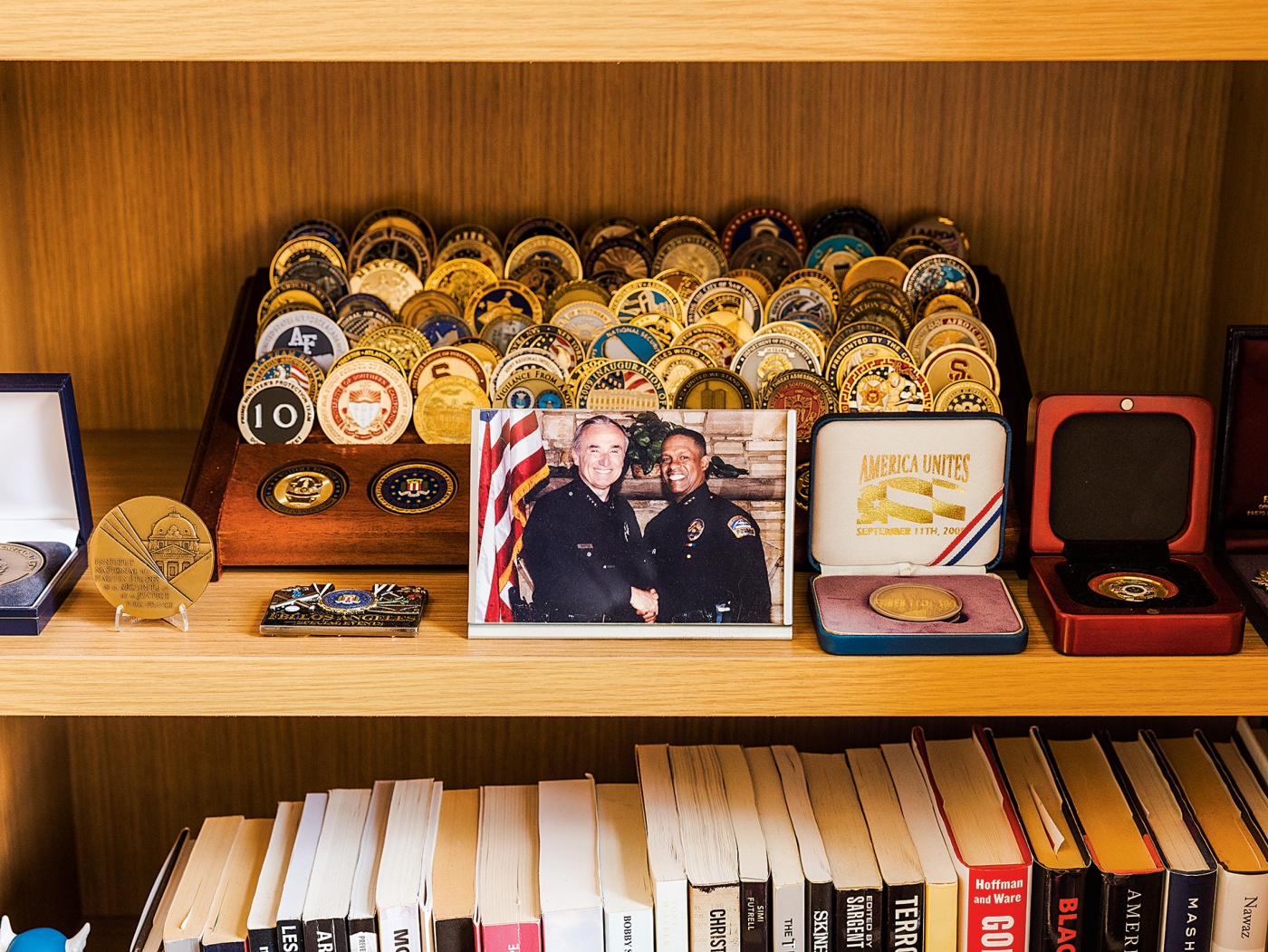
His life would take an unexpected change when a trio of FBI agents visited the police precinct. “I had the typical notion about the FBI that most cops have, which is that we don’t want to be them. They don’t want to be us. It was very competitive, especially back then,” he says. They encouraged Southers to apply, but the young policeman was reticent because he “wanted to stay a cop.” After some more encouragement from his colleagues and friends, including his body-building buddy Schwarzenegger, he applied to the FBI and was accepted.
Special Agent Southers eventually posted in San Diego near several military installations and the Mexican border, working many cases that he’s still forbidden from discussing. But he will say his surveillance skills were honed over many hours of sitting in cars with binoculars and cold meals eaten out of Tupperware. Southers eventually joined the FBI’s Special Weapons and Tactics unit, or SWAT, where he was deployed nationally to perilous situations such as a prison riot in Atlanta where hostages were taken. “I was also at the Bureau when the Challenger space shuttle exploded,” he says. “Next thing we know we’re working this as a terrorism matter. We worked on it as if it had been a sabotage until we proved it wasn’t.”
But Southers wanted to settle in Los Angeles to spend more time with his son (he’d since split with his first wife), so he left the FBI to rejoin the Santa Monica Police Department where he was assigned to the gang unit during a particularly violent period in the city’s history. He began to burn out witnessing so much carnage involving young people, and there were also “race problems” in the department. “It wasn’t what I wanted out of the force, and it made me think there were better places to be.”
He eventually signed on with the Los Angeles County Museum of Art as Assistant Vice President of Visitor and Protective Services, where he stayed for eleven years. “I was at LACMA when 9/11 happened,” says Southers. “The director said to me, what do you want to do? I said, we stay open. And we did. People came in and thanked us. They needed some beauty. They needed to see something good about humanity.”
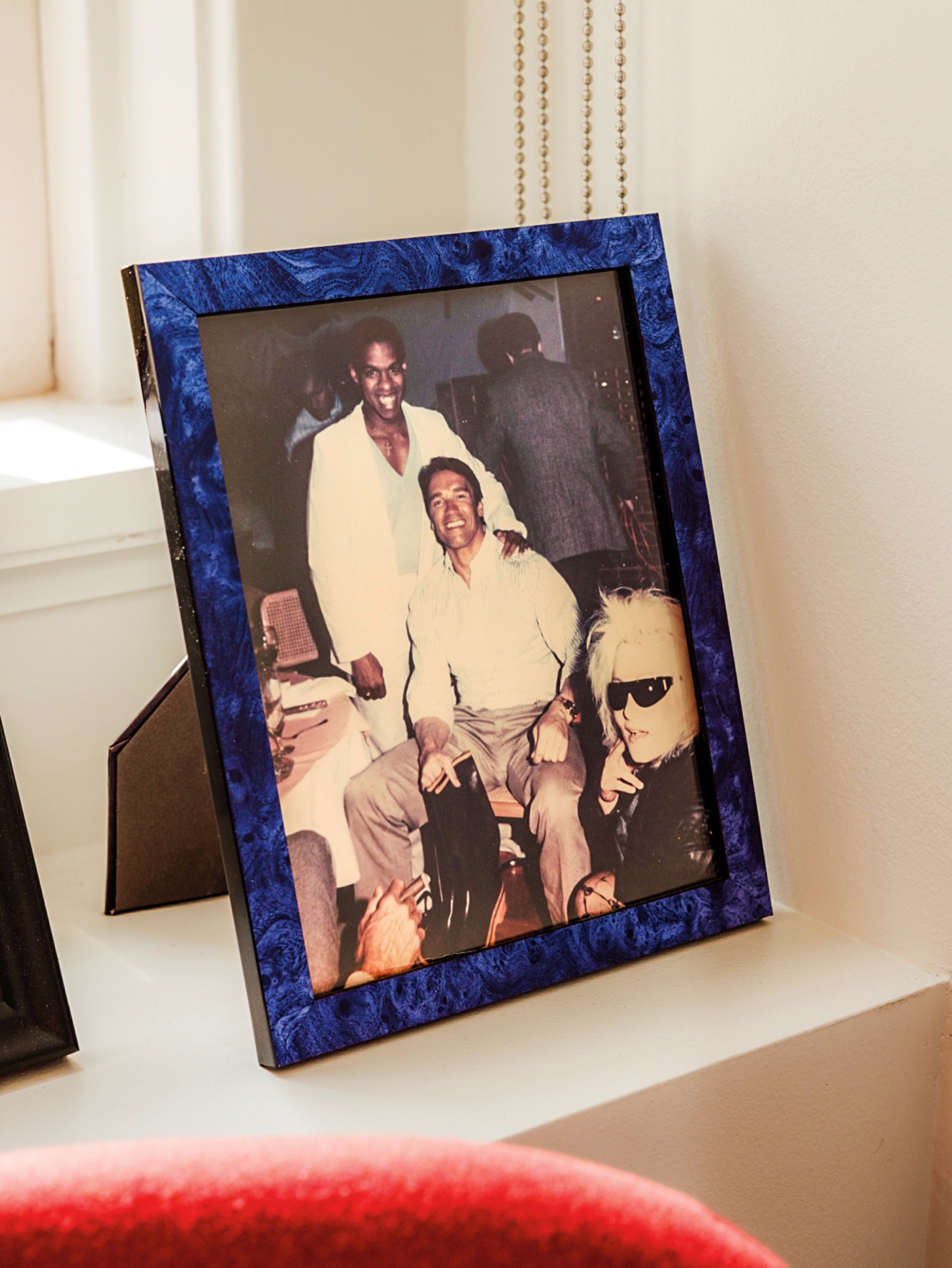
Southers left in 2004 when he was appointed deputy director for critical infrastructure of the California office of homeland security by the new California governor, his old friend Schwarzenegger. In his role Southers was responsible for post-9/11 counterterrorism policy initiatives and measures to protect the state’s critical infrastructure. By 2007, Southers was offered the post of assistant chief of homeland security and intelligence at the Los Angeles World Airports’ police department, overseeing security at one of the country’s busiest airports, and it’s there he met a future president.
“It was the day after he had the debate with Senator Clinton in Los Angeles,” recalls Southers. “He greeted everybody and then I was talking to him one on one. He asked me what I do here, he talked about what a big job that is, and then asked me for my business card so I gave it to him. I said to myself, ‘Well, that’s going to go in his pocket with about 500 other cards. It was nice talking to him.’ Then he said ‘I’m going to have my people reach out to you.’ And I’m saying to myself, yeah, sure. But here’s the scary part: Two weeks later, I got a phone call. I happened to be walking across the street at the airport that day. Cops like to play practical jokes so I thought it was one of my guys playing a joke. I stopped in the middle of the street and started looking around the building to see who could see me. Like, who is this really?”
It was indeed an Obama representative. Southers’s hard work had brought him within spitting distance of the White House. In 2009 he became Obama’s first nominee for Transportation Security Administration Assistant Secretary … and then politics got in the way.
His confirmation was put on hold following concerns by South Carolina Republican Sen. Jim DeMint that Southers might honor the Obama pledge to allow TSA workers to join unions. Four months and two congressional Senate hearings later, Southers withdrew his nomination. In a statement released by the White House, he said: “My nomination has become a lightning rod for those who have chosen to push a political agenda at the risk of the safety and security of the American people.” Former DHS Undersecretary for Border and Transportation Security Asa Hutchinson said, “This is an example of someone getting caught in Washington’s political crossfires over something that is candidly out of his control.”
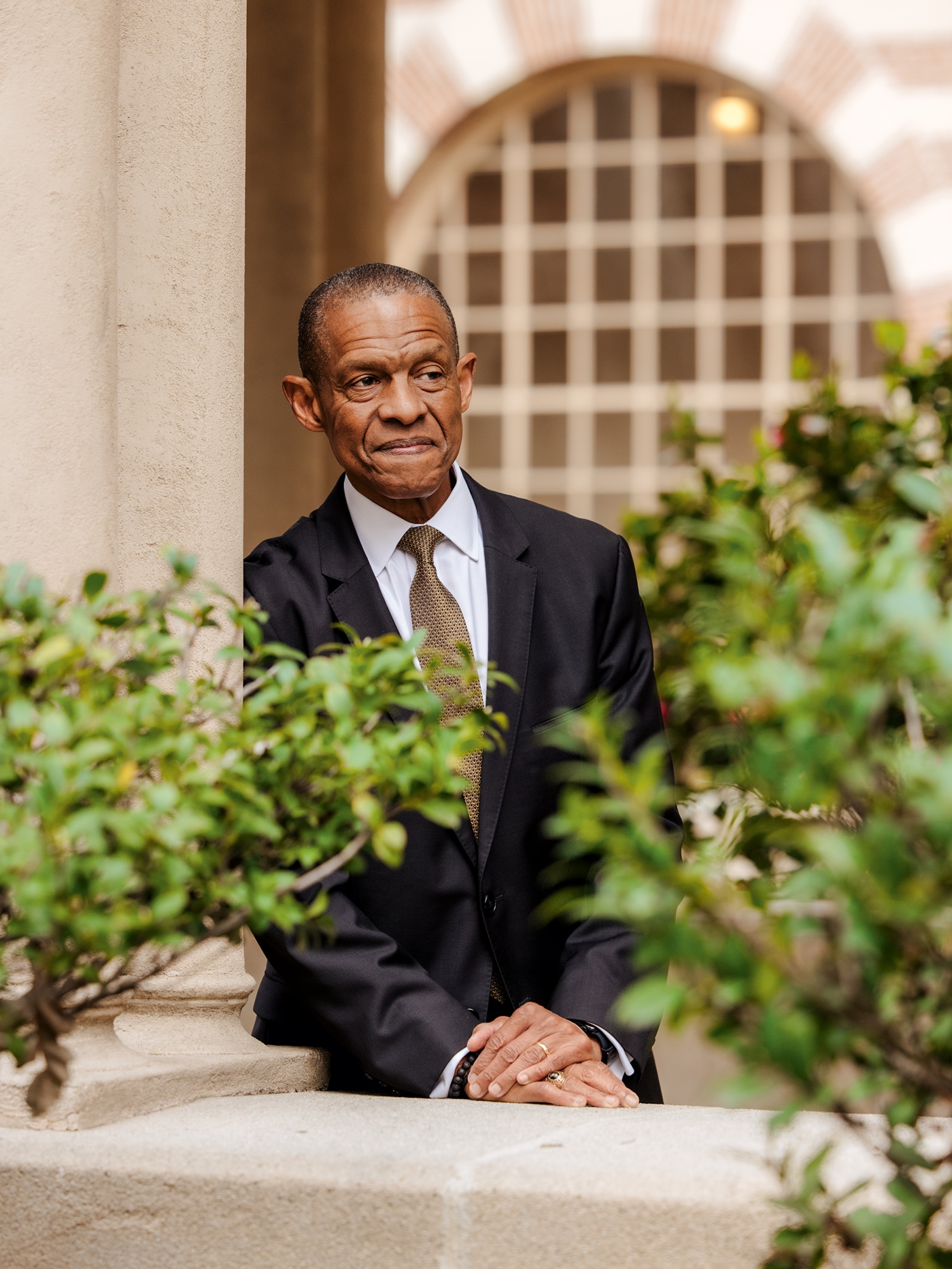
Southers, who’d since remarried, left law enforcement in 2010. He turned his energy toward education and teaching, earning a doctorate in policy, planning, and development from the USC Sol Price School of Public Policy in 2013, publishing the academic study “Homegrown Violent Extremism” the following year. To bolster his counterterrorism knowledge, Southers traveled to Israel where he was provided access to IDF posts to observe how they were managing border control and shared information regarding detection and prevention of the use of improvised explosive devices (IEDs).
Now Southers’s expertise in counterterrorism and teaching skills are a rare and valuable combination sought out by institutions and states alike. He lectures frequently, including at the Pentagon, and was invited to China to assess the potential threats for the Beijing Olympics. But his views on new pockets of extremism in the U.S. aren’t always welcome on Capitol Hill. Southers ruffled feathers when he testified before the U.S. House Committee on Homeland Security in 2013 following the Boston Marathon bombing.
“The Boston Marathon bombing was conducted by terrorists who grew up within miles of where they committed their tragedy,” he stated. “They were locals, educated, living and working in the area. Because of this, they knew the target environment and did not require training to familiarize themselves with the area and its protective measures. Put simply, Tamerlan and Dzhokhar Tsarnaev were homegrown violent extremists, and because of them, Boston joined a fraternity of cities around the world that have endured terrorist attacks plotted and conducted by their own residents.”
“They wanted to hear they were foreign terrorists, and I wasn’t going to go there,” he reflects. “I said the ideology is foreign, but the radicalization occurred in Boston. It wasn’t a popular view.”
But judging by the reception Southers received recently as he made his way across the USC campus, he appears to be quite popular. As associate senior vice president of safety and risk assurance at USC, he’s terminally busy, but he always has a spare moment to chat with whomever he happens to run into on his way from point A to point B.
“It isn’t just about having a police force. It’s about integrating that into the life of the campus so you can create a place where people feel a sense of belonging.”
Over lunch at the University Club, restaurant servers greet him with handshakes and hugs before updating him on their respective kids’ progress in school. Connecting and communicating with those outside his field of work and study is an extra superpower for Southers. USC President Carol Folt points to his genuine interest in those around him as one of the many qualities that make him perfect for the job.
“Erroll is a collaborator with faculty from every background,” she says of Southers, who moved into his current role in 2022. “That’s one of the extraordinary things about him, is that he does not live in a security-person silo. He is the partner that everyone wants. Those are very unusual and important qualities in your campus security and welfare. It isn’t just about having a police force or an emergency service. It’s about integrating that into the life of the campus so you can create a place where people feel a sense of belonging. And that’s what I think when you see him, when you see him walking and talking to people. They feel very reassured that he’s the person in charge.”
Southers jokes that he always seems to end up back at school, be it as a student or professor. He earned his master of public administration at University of Southern California in 1998 and has taught at nearly every juncture of his career.
“I think it’s in the gene pool,” says Southers of his gravitation toward the classroom. “My parents were educators. My wife is an educator. I was on the faculty when I was at the police academy, as well as a drill instructor. And I love teaching. And it just kind of grew. And after 9/11, I wrote a proposal for a Homeland Security and Public Policy course and it’s being taught here now, 21 years later. I just love teaching. I love students. I am very at home on college campuses. And here I am.”
L.A. Times news and culture critic Lorraine Ali’s writing credits include the N.Y. Times and Rolling Stone.

